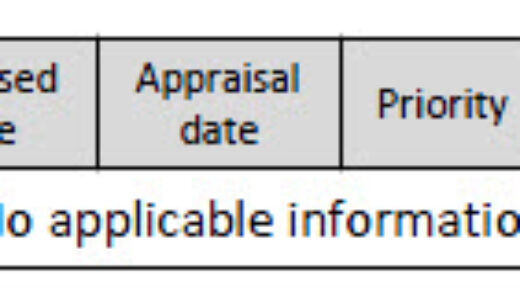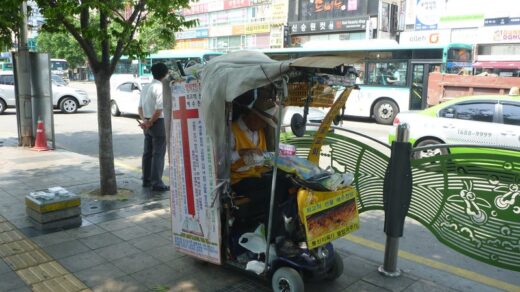I was recently contracted by an international organization to translate the Korean Housing Market Stabilization Plan of December 16, 2019 「12.16 주택시장 안정화 방안」 into English for their internal reference. This page reviews the background behind the so-called 12/16 Plan, and my translations of key terminology.
Keep reading for helpful insight into the current Korean real estate market or if you need help translating these difficult Korean financial terms to English.
This is not an overview or a translation of the plan. My client owns the rights to my English translation. Therefore, to understand the details of the Korean housing market stabilization plan, you’ll have to read the plan yourself (or have someone translate it for you).
If you have any translation-related questions or would like to suggest better translations, please ask a question or leave a comment below.

Background on the Korean housing market
The Korean government constantly battles speculation in the real estate market (부동산 시장). In recent years, measures have been announced several times to try to get a handle on rising property values (especially for housing in the Seoul metropolitan area (수도권)). The current plan (the 12/16 Housing Market Stabilization Plan (「12.16 주택시장 안정화 방안」) (abbreviated to 12/16 Plan (「12.16 방안」, also 「12.16 대책」), named after the date of its announcement: December 16) is the latest salvo by the government against speculators.
The 12/16 Plan was put together jointly by multiple offices of the government (관계부처 합동) and announced by the Ministry of Economy and Finance (기획재정부) without warning. Key parts of the plan took effect immediately so that market participants would be unable take advantage of changes in the law before those changes came into effect. The main goal of the plan (as with all real estate policy of the Korean government) is to supply the market with housing that meets end-use demand (실수용), while keeping prices affordable for households that need homes (meaning, households that currently do not own a house (무주택세대) or that only own one house (1주택자) and would like to upgrade to something nicer to live in).
Real estate speculation in Korea originates from excessive market demand for apartments, especially in certain prime areas of the Seoul metropolitan area (수도권), particularly the Seoul urban area (서울 도심) in several districts (구) south of the Han river (강남권) and suburbs of Seoul. These areas are referred to collectively under the 12/16 Plan as “areas leading the rise in housing prices (집값 상승 선도 지역).”
Speculators in the market use various financing techniques to buy multiple houses (becoming so-called “multiple house owners (다주택자)”). These speculators rent out their houses based on the deposit-based lease (전세) system prevalent in Korea. With this rent approach, renters put down a very large amount of money as a deposit and then do not pay monthly rent (this deposit being sometimes referred to as “key money” but in my translations, I prefer the term “lease-based deposit (전세)”). Renters get their deposit back when they move out, but without receiving any interest. Therefore, the deposit-based leases are interest-free loans to the apartment owner.
In many cases, the amount of a deposit-based lease (전세) exceeds 50% of the market price of the apartment itself, meaning these lease deposits are equivalent to hundreds of thousands of USD. As an example, the deposit-based lease on an apartment worth 500 million KRW (almost 500,000 USD, not an expensive house, especially in Seoul) could be as much as 300 million KRW (or more!).
To finance purchases, buyers of homes often take out housing mortgage loans (주택담보대출, abbreviated to 주담대). Additionally, to finance deposit-based leases, renters may out bank loans backed by their deposit-based lease (전세대출). The problem is that home buyers and renters do not always use their loans specifically for homes they live in; instead, they take out loans that free up funds to buy more homes. This is the kind of Korean housing market activity the government wants to eliminate, and it attempts to do this through the tax system and lottery-based new-housing subscriptions on site redevelopment projects (재건축 사업). Unfortunately, speculators find ways of working around these regulations as well, and the 12/16 Plan focuses on ways of closing yet more loopholes in the system.
Key terms related to the Korean housing market stabilization plan
housing mortgage loan (주택담보대출, abbrev. 주담대)
publicly notified price (공시가격)
To avoid paying higher taxes, it is common practice to officially report a sales price that is much lower than the actual sales price. Getting publicly notified prices to match actual sales prices is a priority of government policy.
sales-price ceiling/sales-price ceiling system (분양가상한제)
In certain designated areas, the government has set price ceilings on new construction to try to prevent speculation-led price appreciation.
sales price on new construction (분양가)
The term 분양가 is translated in the official English versions of the related Korean laws as “sales price.” Naver Dictionary also offers “parcel price” as an option. The Korean term 분양 is specifically about the process of taking a larger new construction project (usually apartments, but not necessarily so) and selling it in smaller units to retail buyers. Therefore, a translation that fully reflects the Korean meaning would be more like “sales price in individual-based units on new construction.” That’s pretty long though and so I settled on “sales price on new construction.”
deposit-based lease (전세)
This term is sometimes referred to in English as “key money.” The idea is that a large deposit replaces monthly rent, with the owner of the home keeping the money as an interest-free loan for the duration of the lease. The government would like leases in the Korean housing market to move toward an ordinary monthly rent (월세) approach, and there has been some progress in the market in this direction in recent years. However, the deposit-based lease system is ideal for speculators who can take the deposit and reinvest it in another home purchase. This works fine when prices are rising. But when prices are falling, lessees sometimes face issues of not being able to get their deposit back upon moving out. Apparently one of the side effects of the recent plan has been to push already sky-high deposit-based lease levels even higher.
loan backed by deposit-based lease (전세대출)
Since deposit-based leases involve extremely large deposits (commonly hundreds of millions of KRW), renters often have to take out bank loans just to rent a home. They then pay interest to the bank, and this interest becomes their de facto monthly rent (while the owner is free to use the deposit for other purposes, such as to purchase additional apartments).
high-priced apartment (고가 아파트)
Under the 12/16 Plan, these are defined as apartments costing at least 900 million KRW.
ultra-high-priced apartment (초고가 아파트)
Under the 12/16 Plan, these are defined as apartments costing at least 1.5 billion KRW.
house leasing business (주택임대업)
People and companies that buy and rent homes are in the house leasing business and are expected to register so that they can be subject to regulations on these businesses.
lease registration (임대등록)
Leases are supposed to be registered. However, owners in the Korean housing market sometimes prefer not to register since registration subjects the owner/lessor to additional regulatory requirements and costs.
plan for 300,000 new housing units within the Seoul metropolitan area (수도권 30만호 계획)
This is the plan of the Seoul Metropolitan Government (서울시) to meet market demand for new housing in Seoul. I didn’t capitalize this in my translation, but I probably should have since it is an official plan of some sort.
administrative and disposal authorization (관리처분인가)
This refers to a key step in the process of construction projects, both redevelopments and improvement products.
funds procurement plan (자금조달계획서)
In order to track the source of funds for purchasing real estate and ensure that the money has been properly reported and taxed, the government requires purchasers of housing that meets certain conditions to submit this plan.
file a move-in report (전입하다)
The government wants purchasers of housing to actually live in their housing and not just contribute to market overheating through speculation and leasing. To qualify for the most tax breaks, purchasers of homes must actually report having moved into a home they purchased.
city-block housing maintenance and improvement project (가로주택정비사업)
This is a type of project where housing divisions meeting certain requirements can upgrade their housing, rather than tear it down and start over, as with reconstruction projects. The English term used in the official translation is “housing improvement project in a city block.” To communicate more clearly in English, while also remaining true to the “city block” expression in the original translation, I translated this as “city-block housing maintenance and improvement project.” Apparently, these projects are managed by the homeowners association of the respective housing division and there have been a lot problems in their execution. Therefore, the government is trying to get involved in order to solve these issues.
improve the extent to which publicly notified prices reflect real prices (현실화)
This was one of the trickier terms to translate, since the Korean term here might most literally be translated as something like “realistic-ization.” I considered extending that out simply to to “make more realistic.” But in the context of this document, I decided that explaining the meaning fully would communicate best for readers.
lease security deposit (보증금)
This is the down-payment paid to seal a house purchase agreement. Cancelling a purchase agreement after payment of the lease security deposit ordinarily means forfeiting the lease security deposit.
vitalize, stimulate, activate, promote activity in (활성화)
The Korean word here is often translated simply as “activate.” I usually prefer “promote activity in.” But for this job, I decided to mainly go with “vitalize.”
transaction order in the marketplace (거래 질서)
The literal translation is “transaction order” (as in the opposite of “disorder”). But reading it in a sentence, it seemed awkward to me to express it in English. I still wasn’t fully satisfied with my translation, but I added “in the marketplace” at the end to communicate more clearly and naturally.
redevelopment/reconstruction (재개발‧재건축)
These are projects where old housing is torn down and replaced by brand-new housing, usually high-rise apartments. The demand in the Korean housing market for this type of housing is very high since it is usually also located in prime locations. Demand is high even for old housing in anticipation of the redevelopment and reconstruction work.
Market participants
single-house owner (1주택자)
These are what the government wants everyone to be: a single-house owner.
temporary two-house owner (일시적 2주택자)
Purchasers of new housing who already own another house become two-house owners. The government does not want people to own and hold two houses, but they do offer a grace period of one or two years, during which a temporary two-house owner is expected to sell the previous home.
multiple-house owner (다주택자)
Multiple-house owners are the targets of government efforts to control speculation.
individual-operator business (개인사업자)
This form of doing business in Korea is the equivalent of a sole proprietorship in the US. Persons doing business in Korea can register to engage in the housing lease business. To maintain parallel phrasing with “corporate operator” below, I first considered translating this as “individual business.” But this translation is ambiguous, which is why I opted for “individual-operator business”
corporate operator (법인)
To disguise their ownership of multiple houses, speculators may set up individual corporations to buy individual houses. The government, of course, is aware of this scheme, and so imposes various regulations on such operators. I felt that “corporate operator” communicates better in this context than just “corporation”; it also maintains a bit of parallelism with “individual-operator business” above.
lease business operator (임대사업자)
Both individual-operator businesses and corporate operators registered to engage in the housing lease business are referred to collectively as “lease business operators”
single-home household (1주택세대)
This is a slightly more precise reference to a single-household owner. Since the government doesn’t recognize someone in the Korean housing market as being a single-house owner if their spouse and dependent children each also own a single house, the “single-home household” is the unit which the government endeavors to count.
homeowners meeting the condition of one house per household (1세대 1주택자)
This is another expression I came up with. It is a yet more precise way that the 12/16 Plan refers to a single-home household.
households that do not own a home (무주택세대)
These are households that are renting, and which the government wants to get into their own homes. They are often given priority in the lottery allocation of house-purchase rights.
period of holding (보유기간)
To control speculation, the government uses the tax system to reward homeowners to buy and hold housing for a long time. I could have gone with “holding period” but decided “period of holding” read more naturally in the context. The same applies to “period of residence” below.
period of residence (거주기간)
To further control speculation, the government also includes a period-of-residence requirement in the provision of various benefits.
the aged (고령자)
There are some tax benefits available to the elderly in the Korean housing market. I chose this term instead of “the elderly” because it is used in the English versions of related laws.
minor (미성년자)
Penalties for violations of various regulations on house purchasing and leasing are relaxed for minors. For this reason, speculators will often put real estate in the names of their children, knowing that even if they get caught, the penalties will be light.
end-use buyers (실수요자)
These are the buyers the government wants to provide with affordable housing, expecting that they will live in their new homes for years to come.
Areas
Seoul Special Metropolitan City (서울특별시)
This is the official name of Seoul.
Seoul Metropolitan Government (서울시)
This is the official name of the Seoul city government, and is the correct translation for the term 서울시 in the context of this document.
Seoul metropolitan area (수도권)
Literally “capital city area,” but “Seoul metropolitan area” seems a more natural translation. This refers both to Seoul, and to the cities around Seoul, home to at least 50% of the Korean population.
speculative area (투기지역)
This is an official designation given by the Ministry of Economy and Finance to areas that the Ministry applies certain regulations to control speculation.
overheated speculation zone (투기과열지구)
This is an official designation given by the Ministry of Land, Infrastructure and Transport to areas this Ministry applies certain regulations to control speculation. The translation under the official English laws translates this as “high speculation area” but this seemed to imply that this is one step above “speculative area.” However, they are not higher or lower levels of some category, but are mutually independent designations by different government ministries. This is why I came up with my own translation for this one.
areas subject to adjustment (조정대상지역)
I took this translation straight from the English version of the Housing Act. It is yet another designation for housing areas in the Korean housing market that the government is watching carefully, and is also designated by the Ministry of Land, Infrastructure and Transport.
areas leading the rise in housing prices (집값 상승 선도 지역)
This is a catch-all term the 12/16 Plan uses to refer to the areas of Seoul and near Seoul in which the latest round of housing price speculative increases began.
Seoul urban area (서울 도심)
Seoul south of the Han river (강남권)
It would have been easy to translate this as “the Gangnam area.” However, this would have confused readers. There is of course, a Gu in Seoul called Gangnam. But “Gangnam” literally means “south of the river”. In the context of 강남권, the report is referring to the entire area south of the Han river (which cuts through the center of Seoul, and also includes Gangnam Gu).
Han River South 4 Gu (강남4구)
This one was also tricky for the same reason as above. It refers to four specific Gu in area south of the Han river (including Gangnam Gu).
semi-industrial districts (준공업지역)
The 12/16 Plan briefly addresses efforts in areas of Seoul that contain both housing and industrial sites.
Dong (동)
Legally speaking, the Dong concept was eliminated with the Road-Address Name Act in 2012. However, on a practical level, the old neighborhood designations are still widely used. The official standards for translating legal documents mandate that this area designation be transliterated and abbreviated instead of being translated to something like “neighborhood” (which is what I used to do before I learned the rule)
Gu (구)
This is a larger urban geographical division that I used to translate as “district.” However, the correct translation is just “Gu” in italics.
New-city area (신도시)
신도시 literally means “new city” but in the context of the 12/16 Plan (and the Korean real estate market in general), it refers to a site where new apartments are being or have previously been constructed.
Taxes and taxation
The following are all types of taxes and deductions mentioned in the 12/16 Plan that relate to the buying, holding (보유; or “owning”, I translate this word differently depending on context), and sale of real estate (mainly referring to apartments in the current context).
capital gains tax (양도소득세)
Literally, this would be “transfer gains tax” but the correct translation is “capital gains tax.” The capital gains tax is lowest for people who own no more than one home in the Korean housing market and have lived in that home for a long time.
comprehensive real estate holding tax (종합부동산세)
acquisition tax (취득세)
property tax (재산세)
special deduction for long-term holding (장기보유특별공제)
tax deduction rate (세액공제율)
aggregate deduction rate (합산공제율)
old-age deduction (고령자 공제)
Related laws and regulations
The English names of all translated Korean laws can be looked up at the Korean Law Translation Center. All of the acts below are official names and were referred to at one point or another in the 12/16 Korean Housing Market Plan.
Gross Real Estate Tax Act (종합부동산세법)
Income Tax Act (소득세법)
Act on Reporting of Real Estate Transactions, Etc. (부동산거래신고법)
Housing Act (주택법)
Special Act on Private Rental Housing (민간임대주택 특별법)
Criminal Act (형법)
Act on the Regulations of Violations of Public Order (질서위반행위규제법)
Restriction of Special Local Taxation Act (지방세특례제한법)
Act on Small-Scale Housing Improvement (소규모주택정비법)
Rules on Housing Supply (주택공급에 관한 규칙)
I made up this name myself as I suspect there is no official name for these rules in English.
Government organizations
Each of the capitalized government ministries and services are official English names. Most of them have both English and Korean abbreviations.
Ministry of Economy and Finance, MOEF (기획재정부, abbrev. 기재부)
Financial Services Commission, FSC (금융위원회, abbrev. 금융위)
Ministry of the Land, Infrastructure and Transport, MOLIT (국토교통부, abbrev. 국토부)
Ministry of the Interior and Safety, MOIS (행정안전부, abbrev. 행안부)
National Tax Service, NTS (국세청)
Financial Supervisory Service, FSS (금융위원회, abbrev: 금융위)
This basically refers to a local government of some sort, such as a city government. However, the official translation is “local self-governing body”.
local self-governing body (지자체)
Administrative Officer (Grade IV) (서기관)
I ended up making this and the next one up after finding similar English names for similar positions in other organizations.
Administrative Officer (Grade V) (사무관)
related public entities (관계기관)
Literally “related organizations,” in this context, the organizations are “public agencies, organizations, etc.”
Special Judicial Police Unit in Charge of Real Estate Investigations (부동산 조사 전담 특사경)
I found “special judicial police” online as a translation for 특사경. I then built on that to create this unofficial English name for this new investigative unit.
Permanent Investigation Team (상설조사팀)
Well, darn it. I just realized that I misread “상설” as “성실” and translated the name of this team as “Honest Reporting Investigation Team in my translations. However, 상설 means “permanent” or “standing.”
Korean Federation of Community Credit Cooperatives (새마을금고)
The Korean name means “New Village Vault” and the term for “New Village” goes from a government program in the 1970’s and 1980’s to bring rural areas of Korea into the modern era. Today, this organization functions as a credit union and the English name found on the website is much longer than the Korean name.



